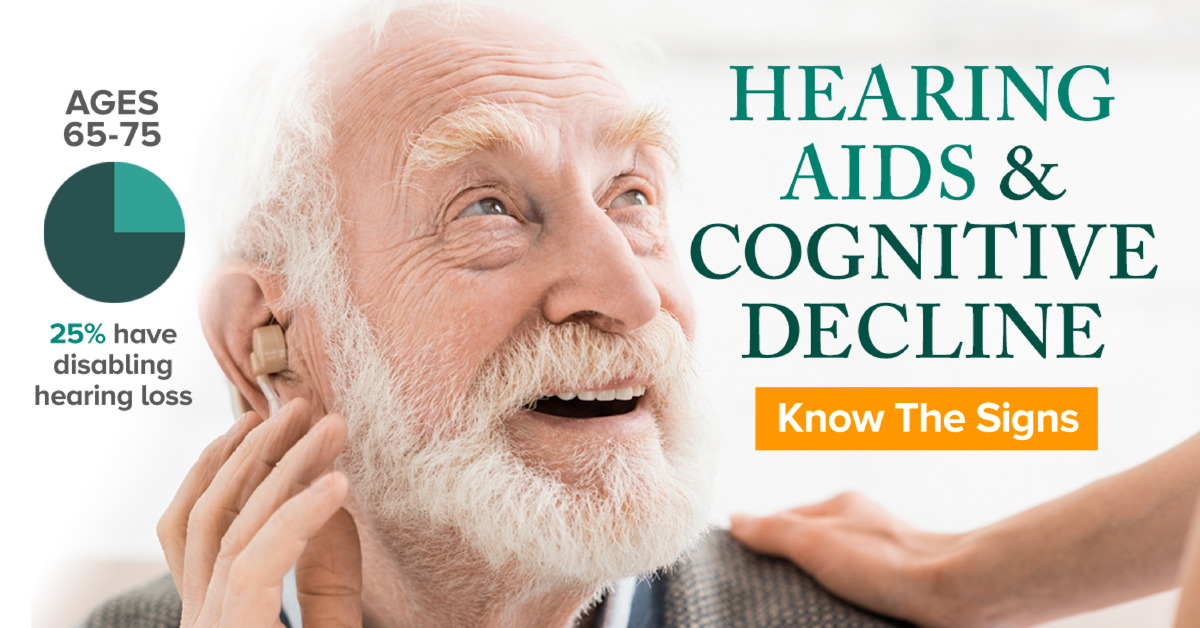The volume on your dad’s television is blaring.
When talking to your mom, she’s constantly asking you to repeat what you said.
In group settings, your parents never join the conversation.
Hearing loss is a common problem that comes with aging. According to the National Institute on Aging, nearly 25 percent of those aged 65 – 74 and 50 percent of those who are 75 and older have disabling hearing loss.
The good news – hearing aids can help most older adults hear sounds they’ve not previously heard, hear speech over the telephone more clearly, make communication with family and friends easier and improve communication in noisy listening situations, like a restaurant.
And now a new study shows hearing aids might also be an important tool in the effort to prevent cognitive decline and dementia.
Experts believe that untreated hearing loss is linked to cognitive decline but, until now, it was unclear whether or not hearing aids and/or hearing restoration surgery could prevent or reduce the decline.
In this new study, researchers at the National University of Singapore reviewed eight prior studies, which included a total of 126,000 participants. The review found that the use of hearing aids was associated with a 19% reduction in long-term cognitive decline. In addition, it found that people with hearing loss who wore devices to help performed 3% better on cognitive scores in the short term than those who were unaided.
“Dementia is far easier to prevent than treat and exceedingly difficult to reverse,” said senior study author Dr. Benjamin Tan, Dean’s Fellow at the Yong Loo Lin School of Medicine, National University of Singapore. “Encouragingly, even patients who already started with mild cognitive impairment (early dementia) in our pooled analysis also benefited from the use of hearing aids, as they also had approximately 20% lower risk of progressing to dementia. This means that it’s never too late to start using hearing aids, but early treatment may help to preserve the most cognition.”
Experts say it might be time to talk to a doctor if your aging loved one is experiencing any of the following symptoms:
- Speech of others sounds mumbled or slurred
- High-pitched sounds, such as “s” or “th” are hard to distinguish
- Conversations are difficult to understand, particularly when there is background noise
- Men’s voices are easier to hear than women’s
- Some sounds seem overly loud and annoying
- Tinnitus (ringing in the ears) occurs in one or both ears
For more information about age-related hearing problems and devices that can help, visit the website for the National Institute on Aging or talk to your senior’s personal physician.
